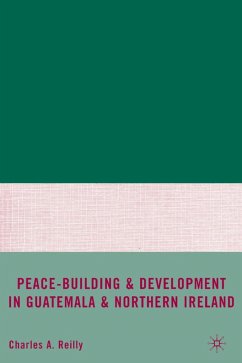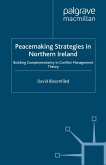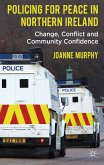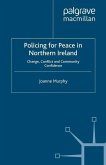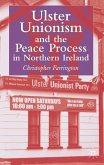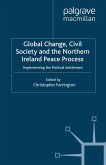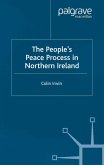This book analyzes the implementation of peace processes in Northern Ireland and Guatemala, with emphasis on the role of mid-level civil society and religious organizations, or "the voluntary sector." Both countries interrupted years of conflict, signed peace accords in 1998 and 1996 respectively, and still struggle to make them work. Despite very different economic development levels, both countries have colonial legacies, deep cultural divisions, and engaged diaspora. They grapple with violence, poverty and inequitable distribution of wealth and power. While religious differences are a backdrop to violence and reconciliation in both cases, insecurity and inequity are the root cause and consequence of these conflicts. The book summarizes lessons learned and makes policy recommendations for more civil post-conflict societies, arguing that similar dynamics fuel sustainable peace-building and authentic development.
"Comparisons between contemporary peace processes are thin on the ground, and most of them deal with broad patterns of peacemaking. Charles Reilly's treatment of the peace processes in Guatemala and Northern Ireland is a welcome departure, and his focus on peace-building and development in these two places is well conceived and executed. The result is a scholarly analysis with strong and practical proposals. It will be a valuable guide for both practitioners and academics." - John Darby, Notre Dame University and University of Ulster
"Few monographs with which I am familiar have explored so well the role of religions, local governments, policing, civil society organizations, migration and education - and the lessons they can teach on how to make peace work and enhance human opportunity. Few make so explicit the overlap between state, markets and civil society in generating public and private policy for the common good." - Angeliki Kanavou, Assistant Professor of Political Science and Peace Studies, Chapman University, Orange, California.
"Charles Reilly presents an excellent illustration of NorthernIreland and Guatemalan peace building processes in a comparative context. The volume is highly recommended to those who seek to understand the empowering role of civil society in bringing justiceand harmony to deeply divided societies." - Ho-Won Jeong, George Mason University, Fairfax, Virginia
"The author reminds us that no peace agreement should be reduced to just a ceasefire. The future perspective of every peace accord requires that peace and social security be made possible with human development across generations." - Carlos Escobar Armas, ASIES, Guatemala
"Few monographs with which I am familiar have explored so well the role of religions, local governments, policing, civil society organizations, migration and education - and the lessons they can teach on how to make peace work and enhance human opportunity. Few make so explicit the overlap between state, markets and civil society in generating public and private policy for the common good." - Angeliki Kanavou, Assistant Professor of Political Science and Peace Studies, Chapman University, Orange, California.
"Charles Reilly presents an excellent illustration of NorthernIreland and Guatemalan peace building processes in a comparative context. The volume is highly recommended to those who seek to understand the empowering role of civil society in bringing justiceand harmony to deeply divided societies." - Ho-Won Jeong, George Mason University, Fairfax, Virginia
"The author reminds us that no peace agreement should be reduced to just a ceasefire. The future perspective of every peace accord requires that peace and social security be made possible with human development across generations." - Carlos Escobar Armas, ASIES, Guatemala

